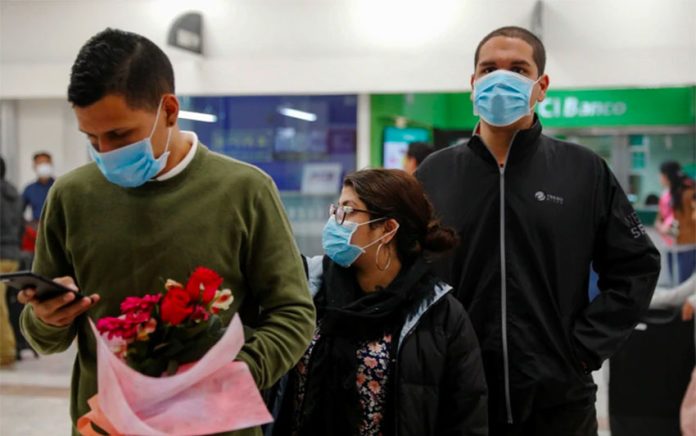When swine flu hit Mexico back in the spring of 2009, I was a high school teacher in Querétaro. School was canceled for two weeks, then for another two weeks. We were told not to travel, though I clearly remember one cool-guy teacher returning after the break looking suspiciously tan and all smiles.
There was quite a bit of panic around the disease, but in the end it actually wasn’t that widespread or deadly. Many people criticized the government for taking such extreme measures like canceling classes and encouraging people to stay indoors, but I’m usually of the idea that an abundance of caution and realizing you’ve been too careful is preferable to a lack of it and being sorry later.
Currently chicken pox is going around my daughter’s school. Yesterday I opened my WhatsApp group of parents to find over 100 panicked messages. “Another fallen soldier!” — we got a play-by-play as each kid was diagnosed.
Some of the more anxious parents declared that they would not be sending their children to school until “something was done,” as if the school administration could 100% control the transmission of disease among biological, social beings with bleach.
Unlike swine flu, chicken pox is a known threat. It’s a common childhood disease for which most children have been vaccinated; they can still get it, but the case would be mild, and it’s better (in terms of how seriously it will affect a healthy person) to get it as a child than as an adult anyway.
In the meantime, we’ll have some very small classes, I suppose.
Now a new threat is upon us in the form of coronavirus (what a name!) as health experts from the National Autonomous University say it will certainly arrive in Mexico soon. It’s not a matter of if but when. We’ve had a couple of false alarms but so far are in the clear.
With the panic surrounding this new disease — as happens with all new diseases — it’s important for us to separate the facts from the paranoia. As humans we focus on preventing loss above spurring gain, and it’s well known that we are basically terrible at calibrating our fear (and therefore response) to actual threat.
Think of transportation: the lifetime likelihood that you will die in a car accident is roughly 1 in 100; the odds that you will die in a plane accident are 1 in 205,552. Most of us get in a car several times a day without a second thought but feel real fear when flying.
Humans are naturally programmed to feel disgusted or repelled by the “unclean.” This is especially true when those suffering are part of a different group, and I’ve got to say I’ve never been impressed by the obvious prejudice against Asians that many Mexicans have. More than worry about the disease itself I worry about the social repercussions: will panic trigger danger in the form of violence or forced social isolation?
On this front, however, I feel more optimistic here than if I were in the United States. First, because Mexicans are simply used to danger; with record violence this year, most seem to have settled into a kind of macabre resignation. Life goes on anyway, and you can’t just get off the ride because you’re nervous.
Will Mexico’s hospitals be ready if we need to quarantine those affected? Probably not. We’re basically the polar opposite of China when it comes to organizational speed. That said, we’re probably going to be OK, or at least as OK as we are in the face of other infectious diseases like the seasonal flu.
To put the disease into perspective, National Geographic put together a graph of death rates compared to other well-known outbreaks. When we feel fear creeping up, statistics can be surprisingly comforting, helping us to put our anxiety into perspective.
The World Health Organization has also published some helpful guidelines for protecting oneself, which include practical advice that you’d expect to find for the prevention of any respiratory disease: wash your hands frequently, don’t get too close to people (oh, that one will be hard here!), and if you’re sick, for goodness sake stay home! Cough into your elbow or your shirt and try not to touch your face too much.
And most importantly, don’t panic. We’re going to be OK. Or at least as OK as we are now with the risks we already face.
Sarah DeVries writes from her home in Xalapa, Veracruz.
